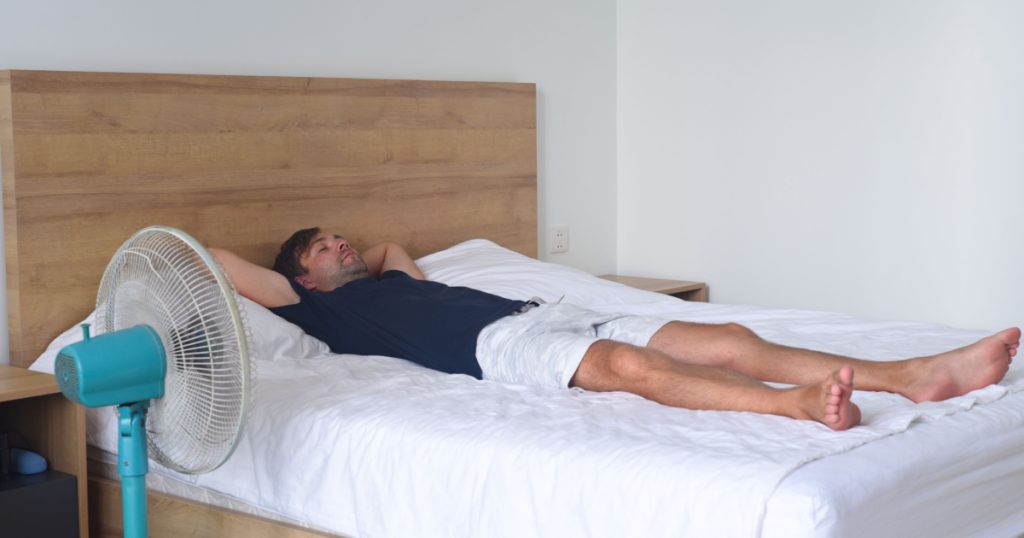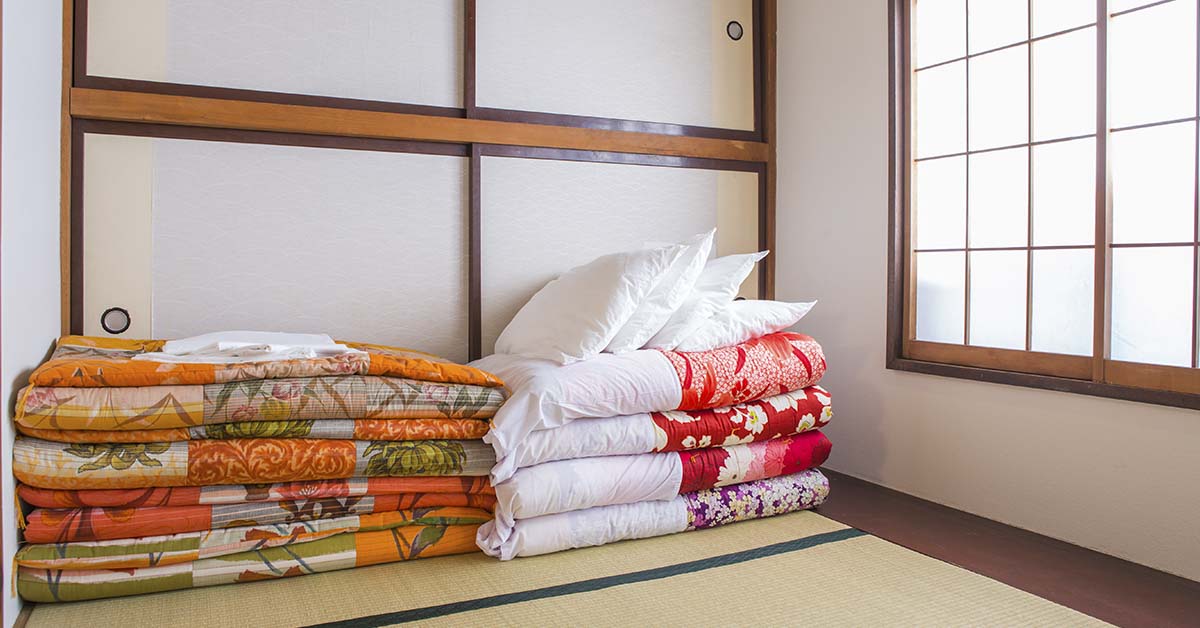Going to sleep in separate beds has been a longstanding cultural norm in Japan, and it’s not just limited to the Land of the Rising Sun. In recent years, the practice of sleeping in separate beds or rooms has become increasingly common worldwide, with 1 in 4 couples choosing to adopt this arrangement.1 While this choice may carry some stigma and raise concerns about its impact on family dynamics, there are valid reasons why some couples find it beneficial for their relationship and overall well-being. Let’s delve deeper into why couples in Japan and beyond opt for separate sleeping arrangements and the potential advantages it can offer.
1. Addressing Sleep-related Issues

One of the most common reasons for couples sleeping apart is to address sleep-related problems that can arise during the night. Issues like snoring, restlessness, parasomnia, frequent trips to the bathroom, or incompatible sleep schedules can disrupt both partners’ rest, leading to increased fatigue and irritability during the day. Going to sleep in separate beds, couples can enjoy better sleep quality and minimize disturbances, which in turn can positively impact their mood and overall health.2 Studies have shown that improved sleep leads to more meaningful connections during the day and a happier, healthier life together.
2. Demonstrating Love in Different Ways

Sleeping apart doesn’t necessarily signify a lack of love or emotional connection between partners. In fact, couples who sleep separately can still demonstrate their affection and commitment in various ways throughout their daily lives. Simple gestures like holding hands, complimenting each other, or spending quality time together can reassure their children and others around them that their bond is strong, even if they choose to sleep in separate beds at night.
3. Resolving Conflicts and Reducing Resentment

Sharing a bed can sometimes lead to conflicts arising from different sleeping habits or disturbances during the night. Over time, such conflicts can build resentment, affecting the overall relationship dynamics. Couples can avoid these issues by sleeping separately and preventing them from escalating into larger problems. It allows each partner to maintain their sleep routine, ensuring they both wake up refreshed and ready to face the day without unnecessary friction.
4. Preserving Intimacy and Romance

Some may fear that going to sleep in separate beds might lead to a decline in intimacy, but research suggests otherwise. Couples who sleep apart for the purpose of better sleep have shown to have no less romantic connection than those who share a bed. Intimacy in a relationship is not solely dependent on the physical aspect of sharing a bed. Emotional connections, mutual respect, and communication play a significant role in preserving and enhancing intimacy, regardless of sleeping arrangements.
5. Individual Privacy and Independence

Sleeping separately can provide couples with a sense of individual privacy and independence, which is essential for maintaining a healthy sense of self within a relationship.3 It allows each partner to have their personal space, fostering a stronger sense of autonomy and self-fulfillment. This, in turn, can lead to more contentment within the relationship as both partners are more likely to feel respected and supported in pursuing their individual interests and needs.
6. Reducing Sleep Disturbances

As couples age, they may develop various sleep disturbances due to health or physical conditions changes. Separate sleeping arrangements can help mitigate the impact of these disturbances on both partners. For instance, a partner with sleep apnea or other sleep disorders might be less disruptive to their spouse’s sleep if they sleep in separate beds or rooms. This can lead to better rest for both partners and, in turn, improve their overall well-being.
7. Managing Different Sleep Schedules

In many cases, couples have different work schedules or personal routines that can interfere with each other’s sleep patterns. For instance, one partner might be a night owl, while the other prefers an early bedtime. Sleeping separately allows each partner to adhere to their preferred sleep schedule, promoting better sleep quality and minimizing disruptions to their natural sleep rhythms.
8. Avoiding Conflict Over Temperature Preferences

Another factor that can impact sleep quality is temperature preferences. Some individuals prefer a cooler sleeping environment, while others like it warmer. Sharing a bed with conflicting temperature preferences can lead to discomfort and sleep disturbances. By sleeping separately, each partner can set the room temperature according to their preferences, ensuring a more comfortable and restful sleep experience.
9. Enhancing Emotional Well-being

Sleeping in separate beds is crucial for emotional well-being and can contribute to a more peaceful and restorative slumber. Better sleep can reduce stress levels and improve emotional regulation, resulting in a more harmonious and satisfying relationship.
10. Respecting Each Other’s Boundaries

Ultimately, separate sleeping arrangements can allow couples to respect each other’s boundaries and personal needs. It allows them to prioritize their individual well-being while still maintaining a loving and supportive partnership during waking hours.
In conclusion, sleeping in separate beds in a marriage or relationship is not a one-size-fits-all solution. It depends on the unique dynamics and needs of each couple. While it may not be suitable for everyone, for some couples, it can be a beneficial choice that contributes to their overall well-being and happiness. The key is open communication, understanding, and finding a mutually satisfying compromise that works best for both partners.
Keep Reading: Parents Still Lose Sleep Over Their Adult Children
Sources
- “1 in 4 couples sleep in separate bedrooms. It affects the whole family.” USA Today. June 22, 2021.
- “Japanese couples sleep in separate beds, seldom kiss each other but many are happy in their marriages, says new survey.” Tokyo Families. November 2017
- “Why do older adults often sleep in separate beds?” Longevity. November 2022.

